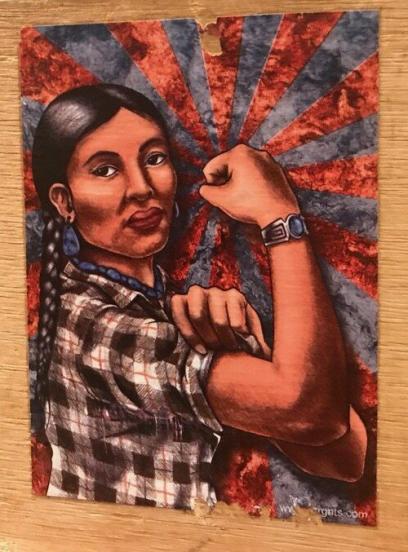When it comes to marginalized students, Native American populations are among the most needy in our nation. That's why a strong delegation of AFT members and staff attended the National Indian Education Association conference Oct. 4-7, offering resources and learning more about how to help native educators—including thousands of AFT members—address the unique challenges they face.
The AFT represents approximately 2,000 native educators and school-related personnel who serve native populations. They belong to the Federation of Indian Service Employees, an AFT affiliate that spans 10 states and represents staff at Indian-reservation schools as well as off-reservation boarding schools and Indian colleges. The schools are federally operated and funded by the Bureau of Indian Education, making them unique in the AFT family.
But the problems FISE members face are not unfamiliar to public school advocates. Their students are often from poor families facing food insecurity, insufficient healthcare and limited support from parents, who may be incarcerated and/or struggling with substance abuse issues, unemployment, domestic violence and other crippling life circumstances. At a listening session, members described various challenges: unmotivated students from families with little parental involvement, a lack of role models in native communities, a shortage of native teachers and counselors, high dropout rates, harassment based on ethnicity, and a lack of teacher, administrative and staff training.
"This is probably the most disenfranchised population of students in terms of academic indicators," says Giselle Lundy-Ponce, assistant to the AFT executive vice president and a longtime advocate for marginalized students. "They have the highest dropout rate, the highest rate of teenage suicide, the highest teacher turnover rates at their schools. They're afflicted with everything that we already deal with in our urban settings, plus more." Many communities are also located in remote areas, far from healthcare centers, job opportunities, higher education centers and other resources.
The AFT presented four workshops at the conference, covering the union's work in social justice, equity and community building, early childhood education, community schools and bilingual education. One of the workshops focused on how to use native foods to teach nutrition, and one was a listening session to help direct the union's future work. An AFT exhibit booth offered information on Share My Lesson, the free online collection of lesson plans by and for teachers; Colorín Colorado, a resource for culturally responsive education; early childhood education; community schools; and access to higher education. The AFT also helped sponsor conference speakers, native educators making a difference in the lives of thousands of students.
Sue Parton, president of FISE, was especially inspired by what she learned about community schools; the association plans to propose a community school pilot program for one of the BIE schools in Oklahoma, her home state. By advocating for programs like community schools, which offer wraparound services to address students' social-emotional needs, the AFT offers "a ray of hope," says Parton. She envisions the possible transformation of Indian schools from under-resourced, poor-performing institutions to desirable education centers that also serve as a hub of activity for the surrounding communities.
Parton also praised the AFT's insistence on treating teachers and school staff as professionals, and giving them access to professional development programs that will help them serve their students. That's especially important for BIE schools under the Trump administration, which, in an effort to "drain the swamp," has slashed the number of federal employees, including BIE educators. Vacant teacher positions—already difficult to fill in remote locations and low-performing schools—are often left empty, leaving uncertified "education technicians" in charge, a move that further deteriorates the schools' reputations.
The NIEA conference laid bare these problems and more, says Lundy-Ponce. "Our advocacy and work to highlight the strengths of and challenges faced by Native American students and members must continue."
[Virginia Myers]


